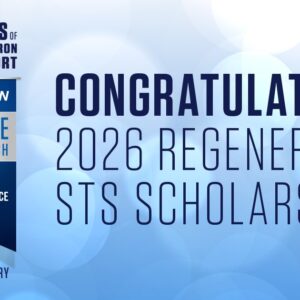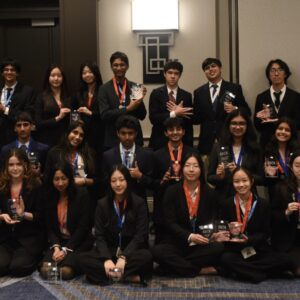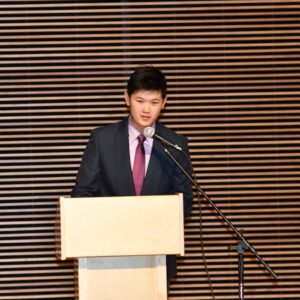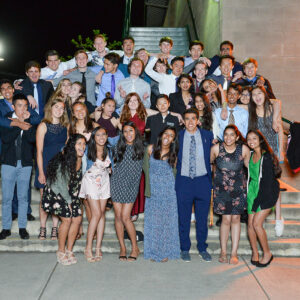This article originally appeared in the summer 2014 Harker Quarterly.
Days before the 2014 graduation ceremony, the classes of 2014 and 2015 gathered at the upper school quad for this year’s baccalaureate ceremony. This traditional event bid the seniors a bittersweet farewell and welcomed grade 11 students into their upcoming roles as Harker seniors.
After an introduction by Upper School Head Butch Keller, Anthony Silk, upper school math teacher and this year’s faculty speaker, took his spot at the podium.
Silk asked the students in the audience to close their eyes and envision what success looks like for them and how they might achieve it.
First on Silk’s list of steps was learning how to take risks. He recalled a story in which he tried skydiving for the first time during college, an experience that forced him out of his comfort zone but helped him learn a valuable lesson. “Taking a risk doesn’t mean doing something risky, something you’re completely unprepared for. It means doing something where the outcome is unknown. But that’s OK.”
Silk also discussed failure, and why it isn’t actually failing. After losing a job that he had mentioned in an earlier anecdote, he ended up working on a cruise ship, which he enjoyed because it gave him the opportunity to be out at sea and working with people. His next challenge was to find something that combined this newfound enthusiasm for helping people with his love for mathematics. It was then that his best friend advised him to become a teacher, which led him to Harker. “Remember, when you can’t see your future, find someone who can,” he said.
Next up was Efrey Noten, grade 12, this year’s student baccalaureate speaker. Noten’s speech emphasized a quality that he felt many people forget after leaving college and entering the work force: compassion. Referencing a graduation speech given by author David Foster Wallace, he retold a parable about two young fish who encounter another, older fish, who greets them and asks how the water is. One of the younger fish then looks at the other and asks, “What the hell is water?”
“Mr. Wallace clarified by saying that the fish story shows us that the stuff most obvious and common to us is the stuff we have the most trouble perceiving or conceptualizing,” Noten said, adding that graduates would find themselves getting up every day to work a challenging job, come home tired, eat and retire to bed. “The so-called rat race I’ve just described often causes us to react to minor inconveniences with irrational, internalized rage,” Noten said.
“I just ask that if you find yourself repeating the same ceremony day in and day out, that you become actively aware and compassionate of the people around you,” he said. “Do not let yourself forget, as the two young fish did, what water is.”









